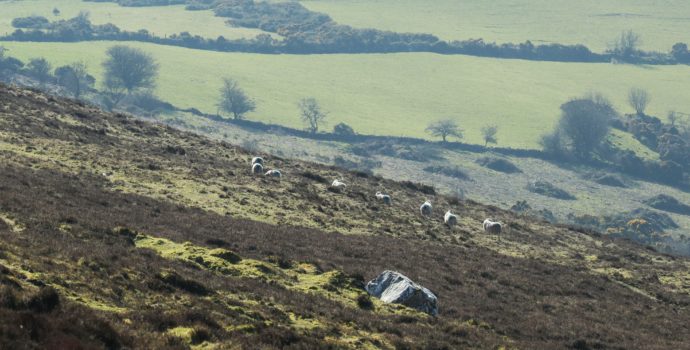
IFA National Hill Farming Committee Chairman Flor McCarthy led a delegation to meet Department of Agriculture officials today to break the logjam that has developed where a substantial number of GLAS commonage farmers still remain to be paid their final 15% instalment for 2017.
Currently, around 9,000 commonage farmers are in GLAS on up to 4,000 commonages. So far, however, just 1,490 plans – representing 40% – have been finalised, meaning that up to 6,000 farmers are still awaiting payment worth around €4m.
The IFA hill farmer leader said that the Department of Agriculture confirmed that payments will issue once the commonage plan is submitted. IFA is urging farmers to get their planners to complete plans as soon as possible. Flor McCarthy said planners need to step up as it is clear that in some cases, plans are being put on the long finger.
Flor McCarthy told the Department officials that difficulties have arisen as many of the Teagasc/FRS planners who commenced the interim plans last year are no longer engaged in GLAS plans. Teagasc, which is the body that contracted FRS to do GLAS plans, has to make the necessary service available so that their clients are not left high and dry, Flor McCarthy said.
He said that on 75 commonages where the Department of Agriculture appointed, there was a clear commitment given that farmers would not be impacted where there was a problem that was not the farmer’s fault.
Flor McCarthy said that in the future CAP post-2020 hill farmers must have a better environmental scheme than the current GLAS available to them. In addition, he said a lot of hill land is designated as SAC or SPA and this must be catered for with a meaningful support scheme that recognises the farming and other restrictions imposed.
He said a new environmental scheme is necessary with an increased maximum payment from the current level of €5,000 to €10,000 with additional payments to farmers with designated land.
In relation to the overall situation on GLAS payments, the Department informed the IFA delegation that another major reason for non-payment is outstanding GLAS 3 nutrient management plans, and farmers not having completed the required training course.




